Those Who Love Brussels, Step Forward!
Adelina Marini, February 29, 2016
 Three years passed since British Prime Minister David Cameron gave his famous “European” speech, with which he stated that he demands a re-negotiation of the relations between Great Britain and the EU, masked by the claim for a EU reform. On January 23rd 2013, Mr Cameron announced that “the main, over-riding purpose of the European Union is different: not to win peace, but to secure prosperity”. It did seem so at the time. The EU and the euro area in particular had just started raising their heads from the worst crisis since their inception and truly growth and unemployment were the only problems that the EU was facing. The Crimea had not yet been annexed by Russia; the war in Syria was still a quiet civil war, which was not producing a tsunami of refugees towards Europe; Euroscepticism was still too local.
Three years passed since British Prime Minister David Cameron gave his famous “European” speech, with which he stated that he demands a re-negotiation of the relations between Great Britain and the EU, masked by the claim for a EU reform. On January 23rd 2013, Mr Cameron announced that “the main, over-riding purpose of the European Union is different: not to win peace, but to secure prosperity”. It did seem so at the time. The EU and the euro area in particular had just started raising their heads from the worst crisis since their inception and truly growth and unemployment were the only problems that the EU was facing. The Crimea had not yet been annexed by Russia; the war in Syria was still a quiet civil war, which was not producing a tsunami of refugees towards Europe; Euroscepticism was still too local.
Three years later, however the primary cause for the creation of the EU as a peace project is more valid than ever – the refugee crisis showed a much greater potential for breaking up the Union than all the problems in the euro area. It was clearly seen in three years that European values mean different things in the different ends of the continent. To Viktor Orbán illiberal democracy is more lucrative than the liberal one, unilateral actions are more effective than collective ones, and humanism is needless in moments when the nation needs to be protected from multiculturalism. Soon Orbán’s example was followed by Poland, The Czech Republic, Slovakia. Problems began springing up like mushrooms and David Cameron’s analysis from January 23rd 2013 was becoming more distanced and obsolete. The emerging economies are no longer engines to global growth, but rather a source of threat of new instability and recession. Globalisation began shifting into de-globalisation. Supranationalisation into re-nationalisation.
Although David Cameron did claim three years ago that his sole wish was to make the Union more adequate for the 21st century, his national and inter-party interests clearly showed through. The main accent of his speech at that time was tearing Great Britain away from the stronger and stronger gravitational forces in the EU, which stirred because of the euro area crisis. At the time, he set out five principles. The first one was improving EU competitiveness by finishing the common market, especially in the spheres of services, energy, and digital technologies. Something that has long been a priority to the Commission, especially strongly so during the leadership of Jean-Claude Juncker, elected president almost two years after Cameron’s European speech.
His second principle was flexibility – those who want deeper integration are welcome, and those who do not should not be forced. The third principle he laid out was returning national sovereignty, and the fourth one – securing democratic accountability through an increase of the role of national parliaments. At the last spot he placed the principle of fairness, aimed entirely at the euro area’s future.
What did David Cameron achieve three years later?
The five principles evolved into four baskets, exchanging their weight as priorities. The four baskets were formulated in November of 2015 in a letter by the British PM to the president of the European Council. According to this letter, priorities have rearranged and changed as follows: 1. relations with the euro area; 2. competitiveness moved to second place; 3. national sovereignty turned into a rather more specifically British issue; 4. the restriction of access of migrants from the EU to Great Britain’s social systems appeared. Initially, the problems of David Cameron and his demands were seen as purely national and inter-party ones, having no place on the European table, but with the overstraining of the British debate, especially after January 1st 2014 when the last labour restrictions for Bulgarians and Romanians were dropped, the situation began to slip out of control.
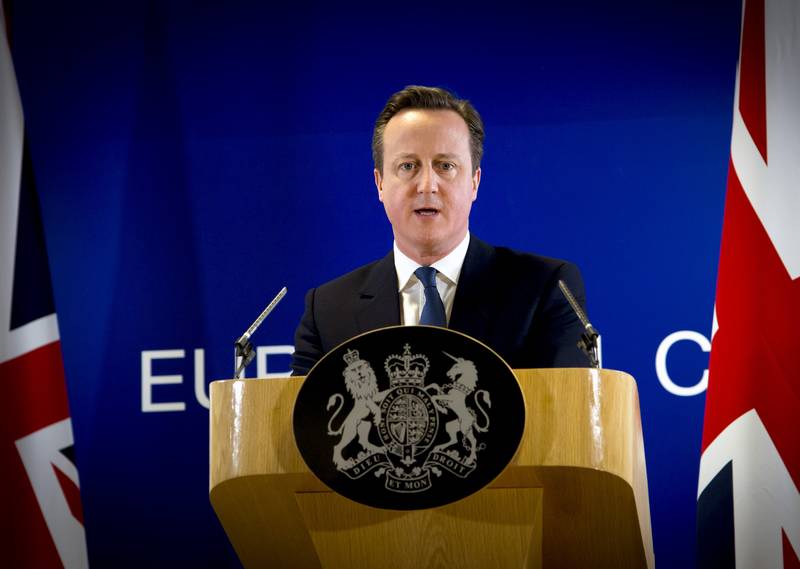
With the deterioration of the geopolitical situation the EU began realising that the British crisis is unnecessary and it is better to find a solution to it, than leave it to grow into the next regional conflict in the EU or around it. This is how we get to the February summit, which no one wanted. Its first day was spent in prolonged and arduous discussions of the far greater problem to the EU – the refugee crisis and how should it be solved. After that long hours of bilateral meetings and negotiations began in order to try and satisfy David Cameron’s demands to the maximum extent, so that he can announce the date for the referendum and the campaign can get its official start.
Great achievement for the EU, lesser for David Cameron
David Cameron won more than the EU, but did not win enough to satisfy the hardliners in his own party, the media environment, and the opposition. And the EU agreed to pay a stiff price in order to get rid of one of the many crises that have totally occupied it over the last few months. The Union made significant concessions on three of the four baskets. The most important one concerns the future of the euro area. Great Britain won a possible exception from the banking union rules, which was one of the most controversial issues that France and Belgium balked at. The initial proposal of Donald Tusk provided for special rules to be crafted for Great Britain in case the need for securing financial stability arose. In the final draft, of the deal only specific provisions within the common rules are allowed, the aim being preserving the equality of all players on the financial market.
Of course, there is no cause for panicking yet, for these rules have yet to be written, if the need for it arises. The problem here is that these rules could be stopped by a single member state, as becomes clear from the deal. It is written in a special statement that if only a single member state expresses disagreement with the adoption of legislation, pertaining to the functioning of the banking union, the Council must discuss the problem and find a solution. The member state is obligated to show argumentation, but it is clear as day that this will extend the process of adopting new legislation. And because the issue here is mainly cases when financial stability is at risk, the time factor could be crucial.
In the initial text of the deal, announced by Donald Tusk on February 2nd, it said explicitly that this cannot lead to a situation where one or more states veto the effective governance of the banking union or future euro area integration. This text, however, was deleted from the final version of the deal. Moreover, initially it was provided for more than one member state having to express disagreement with proposed legislation. The final text gives the right to a single state to do it.
There are no essential changes on the rest of the problematic issues compared to the initial proposal. The scheme remains of 55% of the votes, allocated to national parliaments, being able to block European legislation if they believe it to be in violation of the subsidiarity principle. This means it does not concern trans-national problems, which need to be tackled at the European level. David Cameron was also given the coveted promise of putting it in the Treaties that the phrase “to an ever closer union” does not apply to Great Britain. This is totally redundant, for even now Great Britain has exceptions, negotiated exactly during amendments to the Treaties, so if it gets to another opening of the Treaties for changes, Great Britain could easily negotiate whatever exception it wants. A promise for that is not necessary. This had a rather symbolic value.
The problem for David Cameron is that, at this stage, there is no appetite on the continent for the opening of treaties. This could happen within a year or two, but could be avoided for five or more years as well. It all depends on what the continental situation is. The largest changes are in the fourth basket, concerning social benefits for EU citizens in Great Britain. Many of the rich EU member states were sympathetic towards the amendments, Germany included. Every member state that wishes so can index child benefits to the children of migrants, who do not reside in the country in question, but rather spend it in their homeland. The possibility to stop social benefits to migrants, who have not contributed 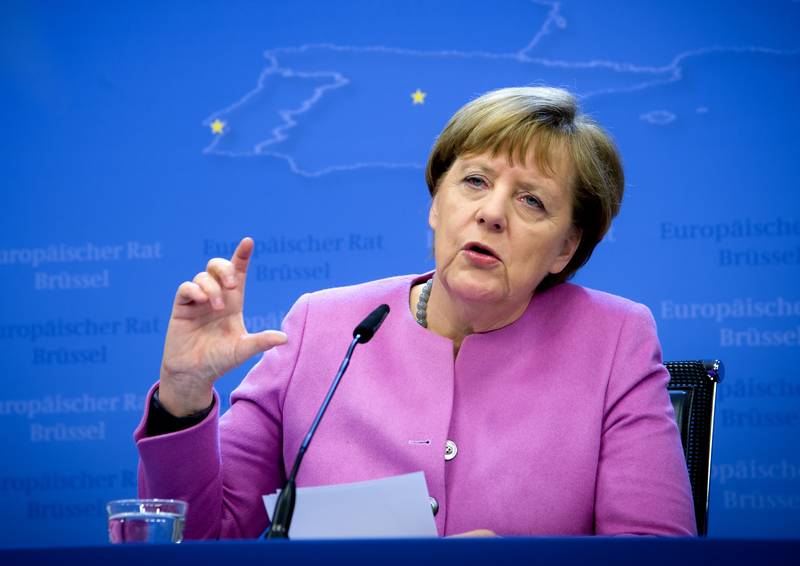 to the social system, is introduced. The initial exception is for four years, but it could be increased up to seven.
to the social system, is introduced. The initial exception is for four years, but it could be increased up to seven.
In order to trigger this mechanism, the requesting country should be subjected to a mass influx of migrants for a long period of time. The Commission is the one to judge whether this is the situation at hand, but the Council will make the decision. Considering the already stated approval by a number of member states it is certain that the mechanism will be activated effortlessly. This is the fairest agreement in the entire deal, for it ends the practise, known as “social tourism” and will fully integrate in the scheme, which enlargement negotiations Commissioner Johannes Hahn (Austria, EPP) advertised to candidate countries – “turning brain drain to brain circulation”. The problem is, however, that the activation of this safety mechanism could unleash a wave of counter-measures in the poorer member states, who could levy restrictions on businesses from richer member states with the argument that they are suffocating national companies.
It is possible that this mechanism opens Pandora’s box and further undermine the integrity of the Union, if it does survive in its current form at all, until the mechanism is activated for the first time. And this will become possible when the result comes out from the referendum for Great Britain’s remaining in the EU on June 23rd. If the Brits vote for remaining in the Union, the deal will be activated. If they, however, decide to leave the Union, nothing of what was agreed will apply to anybody.
The strongest criticism of the potential of the deal was expressed by European Parliament President Martin Schulz (Socialists and Democrats, Germany). In a speech in front of the leaders he warned that the treaties were clear enough that the EU’s currency is the euro and Great Britain is a guaranteed exception. “Where could there be any need for further clarification? It's crystal clear”, he said. According to him, starting along this path could breed ambiguities and thus threaten the functioning of the currency union. Martin Schulz urged to avoid giving the possibility of a veto on issues concerning the euro area. “Such a de facto veto is not acceptable for the European Parliament: how could we agree to a procedure which could paralyse the Eurozone?”, he asked.
His concerns are fully justified, having in mind the case of the fiscal compact. In this occasion minimal changes in the treaties were proposed, but Great Britain opposed, leading to the creation of an intergovernmental treaty. This effectively impeded the tightening of fiscal discipline in the euro area in an important moment for it.
A marriage of convenience
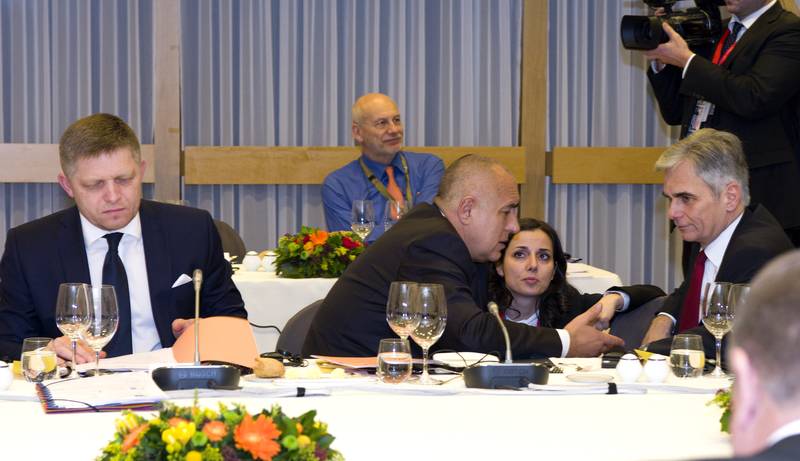
The deal between Great Britain and the EU is not the end. It is a temporary solution, aiming to prevent a negative outcome of the referendum. The problems are due to begin after that, for in the end it is about a different perception of the Union. The British PM announced a Pyrrhic victory after the end of the summit, claiming that Great Britain received a special status. All the leaders on the continent, however, claimed that London always had such a status and gained nothing more special than the already special treatments. “I do not love Brussels. I love Britain”, he said at the briefing after the summit. “We'll be in the parts of the EU that work for us, influencing the decisions that affect us in the driving seat and with the ability to take action to keep our people safe. And we'll be out of the parts of Europe that don’t work for us - out of the open borders, out of the bailouts, out of the euro and out of those schemes that Britain wants no part of”, explained Cameron. It is about pure pragmatism. European Commission President Jean-Claude Juncker (Luxembourg, EPP) reacted sharply to this, starting the final press conference with the words: “I love Brussels more than other parts of Europe”, obviously in reply to David Cameron’s statement.
European leaders were not too happy with what was agreed on, but to a different degree. It was important to all that this drama had ended. Whether this is so, remains to be seen. The referendum itself is a much more important step. Moreover, David Cameron stated repeatedly after the deal that reforms in the EU have yet to begin, if Great Britain stays. Him having the “I do not love Brussels” attitude, this is hardly good news to European leaders. Many in the EU, however, were of the opinion that the price may be high, but it is worth paying it for the sole purpose of protecting the integrity of the Union. “The fact that we wanted Britain to remain in the EU justified those compromises”, stated German Chancellor Angela Merkel. She claims that the deal does not hinder future integration in the Union and the euro area in particular. Angela Merkel hinted that the only hindrance to integration in the euro area could come from the inside – some member states being opposed to certain policies.
French President François Hollande also was not brimming with love for London. To him it was important that Great Britain does not turn into an obstacle to the euro area’s future. We cannot keep asking ourselves the same questions, like a country’s membership for example, he said. “Europe should move forward” was the message of the French president. There were voices heard from the leaders that the end to the British blackmail has come. Strongest criticism to the entire negotiation process was expressed by Bulgarian Prime Minister Boyko Borissov, who stated that every country was pulling the rug in its direction. “The instant Cameron presented his terms every single state, including myself, thought about Schengen. And I told them: ‘Why us, until they accept us in Schengen, a single state like The Netherlands is stopping us, why should it be so?’ And everyone voiced his claims. And look, it is 5 o’clock Bulgarian time and we have no agreement yet. And I do not see how we are going to get to it on the basis of everyone looking out for their best interest”, said Mr Borissov before the start of the final evening session of negotiations in the late afternoon of February 19th.
Despite the strong speech of EP boss Martin Schulz during the summit, the European Parliament failed during the debates on the deal on February 24th in the plenary. Instead of the parliament playing its long maintained role of a corrective to European decisions, of a body, which demands accountability from European leaders and institutions for the decisions being made, the over three hours long discussion turned into a part of the referendum campaign. Essential comments were numbered. Leaders of political groups stated their wish for Great Britain to remain, voiced all they have said many times before. And the specific parameters of the deal remained untouched, with one or two exceptions, which got lost in the general cacophony of meaningless statements. Such a debate could only strengthen the feeling that the increase of powers of national parliaments in European decision-making is really worth it.
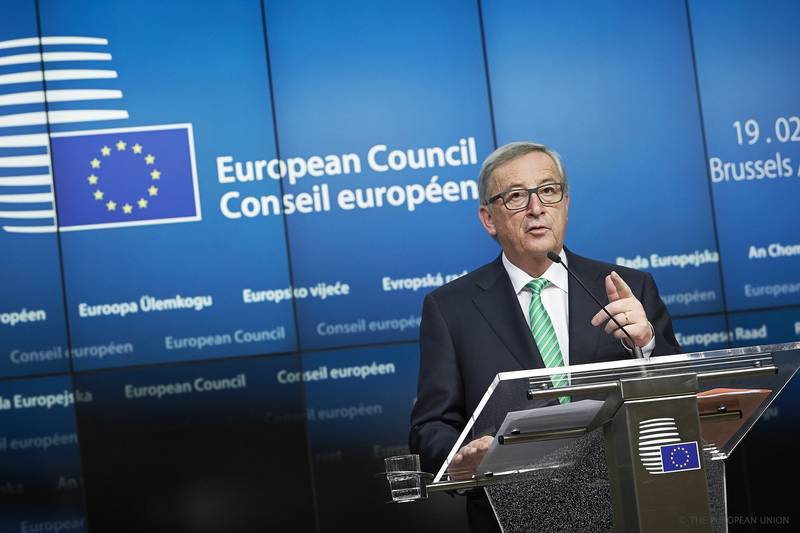
The deal with Great Britain only delays the major conversation, the need for which is already ripening. Italian Prime Minister Matteo Renzi, who has a battle of his own in the EU, stated after the end of the meeting that the referendum in Great Britain could turn into a great possibility to discuss the idea of Europe. He sees the risk in losing the original dream of Europe. This conversation will become especially necessary after the referendum, regardless of its outcome. At the event of Great Britain’s exit from the EU the question “Now where to, with whom, and how?” must be put forward. If Great Britain remains, it will raise the question of how can the Union function with integration and disintegration forces coexisting. The moment is coming when the Union must decide whether the price of compromise did not become too high.
Translated by Stanimir Stoev
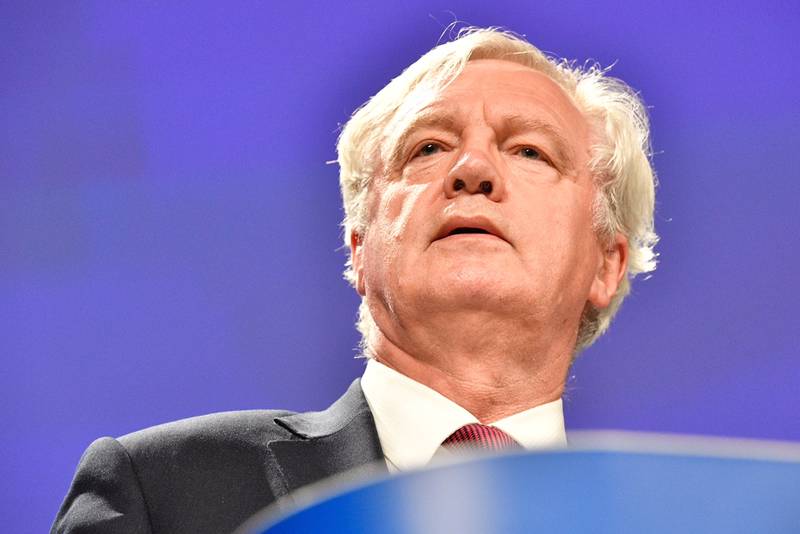 David Davis | © European Commission
David Davis | © European Commission Angela Merkel | © Council of the EU
Angela Merkel | © Council of the EU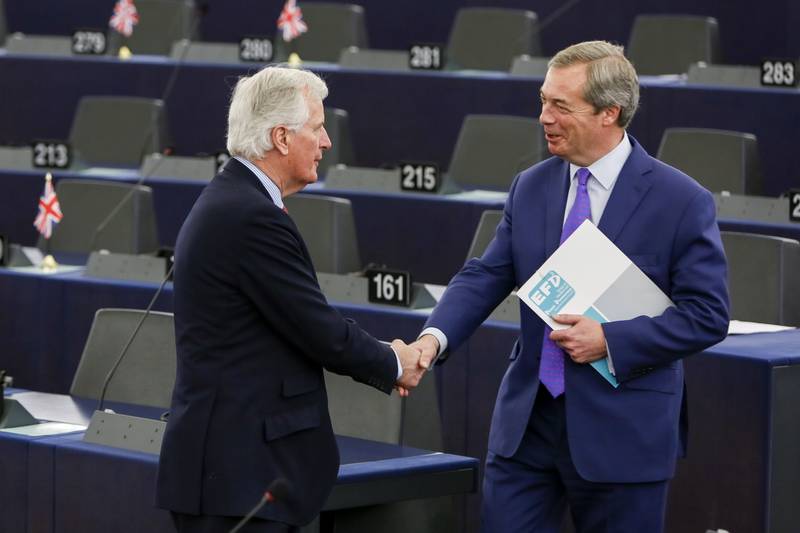 Michel Barnier, Nigel Farage | © European Parliament
Michel Barnier, Nigel Farage | © European Parliament